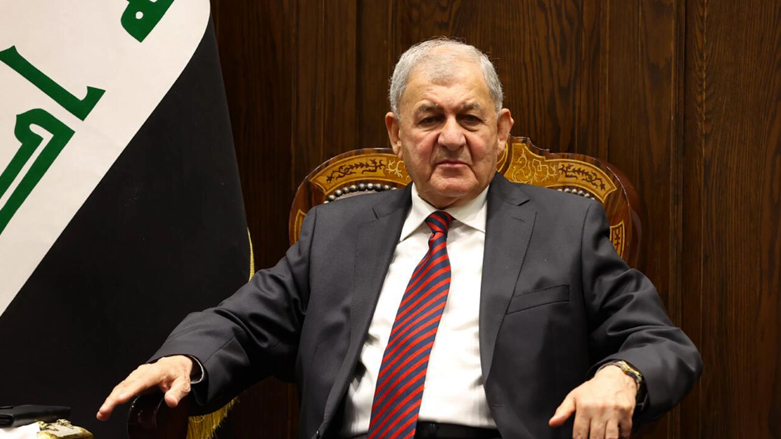New government reflects KDP’s importance in Iraqi politics, as US welcomes government after long delay
However, the KDP’s agreement to another PUK candidate opened the way for the formation of the new government, demonstrating the importance in Iraqi politics of the KDP.

WASHINGTON DC, United States (Kurdistan 24) – On Thursday, a year after Iraq’s last elections, the Council of Representatives (COR) chose a new president: Abdul Latif Rashid. Rashid, in turn, nominated a new prime minister, Mohammed Shia al-Sudani.
Those two moves laid the basis for establishing a new government in Baghdad.
They followed just days after three key Iraqi political figures travelled from Baghdad to Erbil to meet with Masoud Barzani, head of the Kurdistan Democratic Party (KDP), the largest, most popular Kurdish party.
That meeting on Monday, it would seem, finalized the details of an understanding concerning the new Iraqi government among the three most involved parties: the Sunnis, represented by the Speaker of Parliament, Mohammed al-Halboosi; Falih al-Fayyadh, head of the Popular Mobilization Forces, representing the pro-Iranian Coordination Framework; and Barzani, representing the KDP and the Kurds more broadly. Sudani was also present.
Rashid is, formally, independent of any party now, but he was a long-time member of the Patriotic Union of Kurdistan (PUK.)
When the presidential contest was held in the COR on Thursday, the two candidates were Rashid and Barham Salih, the former president. Rashid won by a vote of 162 to 99.
Until the end, the PUK had insisted that Salih remain president. However, the KDP’s agreement to another PUK candidate opened the way for the formation of the new government, demonstrating the importance in Iraqi politics of the KDP, including that of its long-time head, Masoud Barzani.
US Welcomes New Government
Following Thursday’s announcements in Baghdad, State Department Spokesperson Ned Price issued a statement hailing Iraq’s new leadership.
“Today, after more than a year of government formation negotiations, the United States welcomes the Iraqi Council of Representatives’ election of Abdul Latif Rashid as the President of Iraq,” Price said.
Noting that Rashid had named Sudani as Prime Minister-designate, Price added that the US encouraged Iraq’s new leaders “to bear in mind the will of the Iraqi people, who voted for a government responsive to their needs.”
“The United States urges all parties to refrain from violence and to resolve differences amicably and peacefully through the political process,” Price continued, as he reiterated the US “commitment to partnering with the people and government of Iraq to advance our many shared priorities.”
But Biggest Vote Getter—Muqtada al-Sadr—Excluded
There are, however, questions about the stability of Iraq’s new government. Muqtada al-Sadr received the largest number of votes in last year’s elections, and along with the Sunnis and the KDP, Sadr secured a parliamentary majority, which should have allowed him to form a government.
However, last January Tehran pulled off a “judicial coup” in Baghdad, preventing the Sadr-led coalition from taking office. Months of stalemate followed, and in June, Sadr ordered his 73 members of parliament to step down. In August, he announced that he, himself, was withdrawing from politics.
However, that may yet prove to be a political maneuver on Sadr’s part, a way to bring pressure to bear on his rivals. Notably, as the Iraqi parliament met on Thursday, at least nine rockets were fired at the building, wounding at least five people.
While many individuals have congratulated Rashid on his new position, including Iraq’s former president, Barham Salih, Sadr has said nothing, it seems. Thus, it remains to be seen how he will react to Iraq’s new government, whether he intends to accept it or to challenge it. He has previously called for new elections.